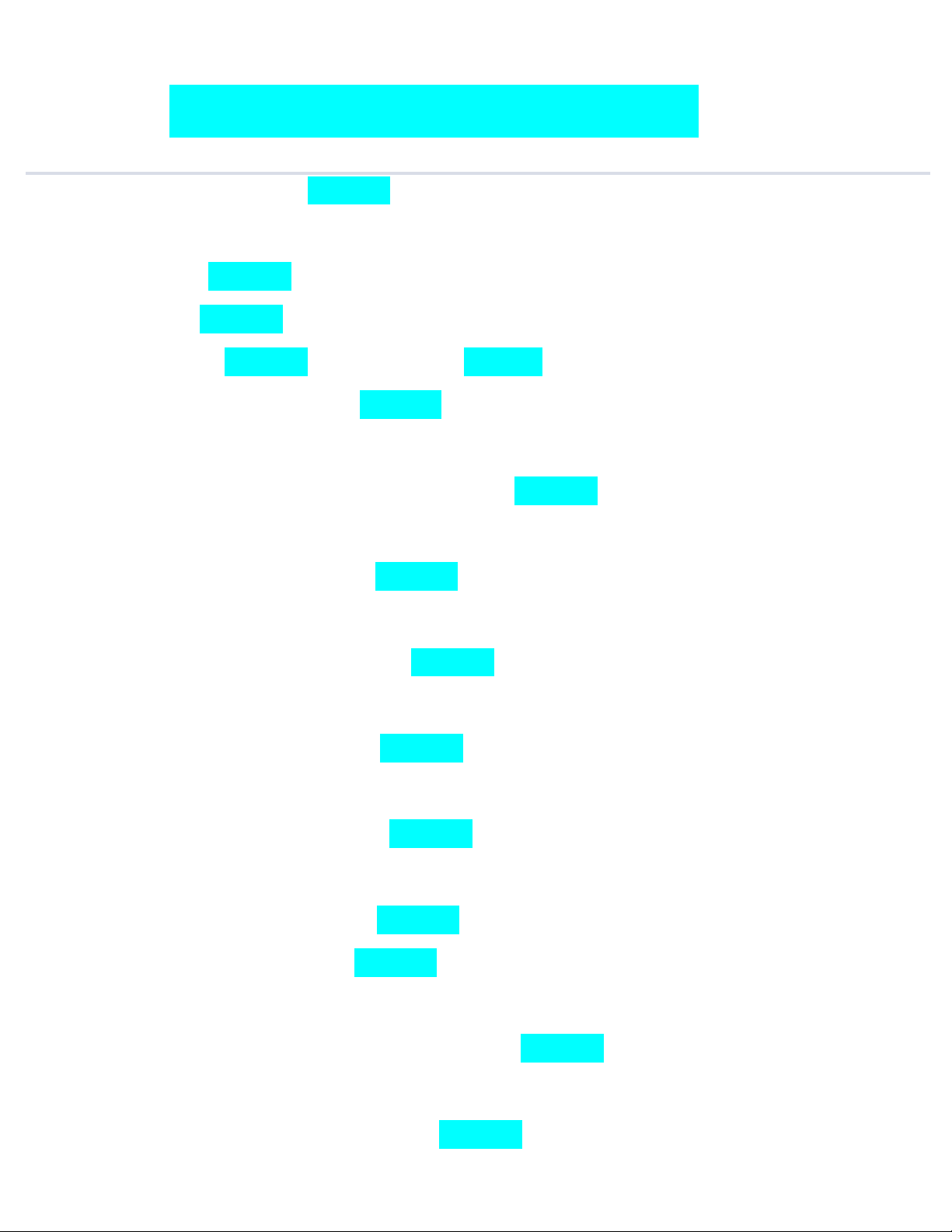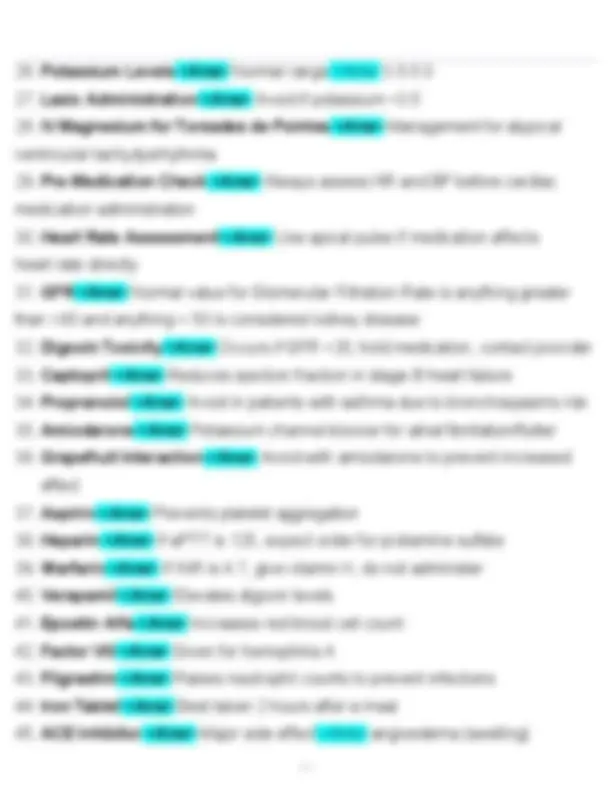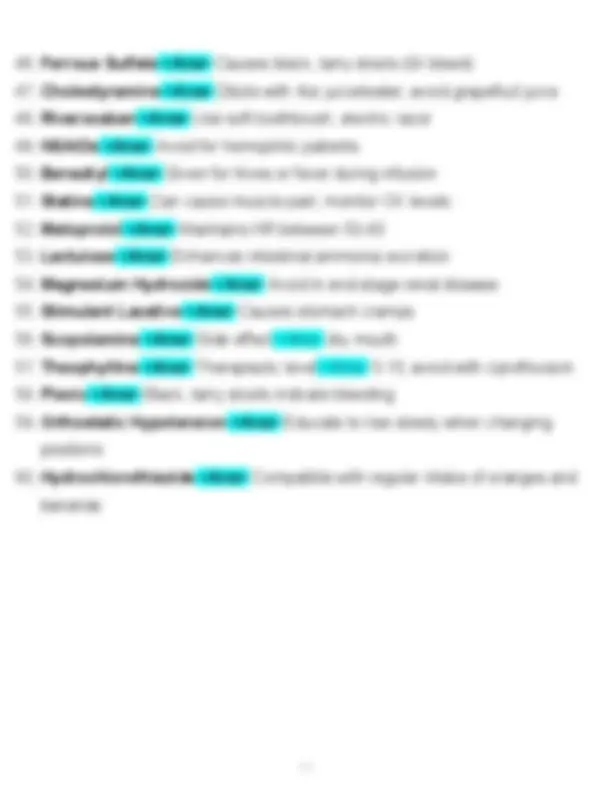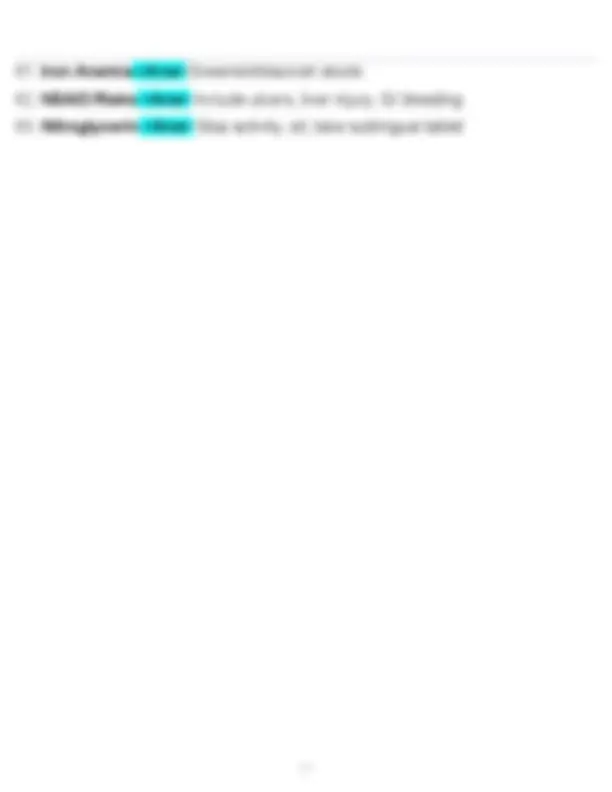





Study with the several resources on Docsity

Earn points by helping other students or get them with a premium plan


Prepare for your exams
Study with the several resources on Docsity

Earn points to download
Earn points by helping other students or get them with a premium plan
Community
Ask the community for help and clear up your study doubts
Discover the best universities in your country according to Docsity users
Free resources
Download our free guides on studying techniques, anxiety management strategies, and thesis advice from Docsity tutors
A comprehensive set of questions and answers covering key concepts in pharmacology, particularly related to hypertension, heart failure, and medication administration. It includes information on drug classifications, mechanisms of action, side effects, and therapeutic monitoring. Valuable for students in nursing programs, particularly those studying nur 2474, as it offers a structured review of important pharmacological principles.
Typology: Exams
1 / 5

This page cannot be seen from the preview
Don't miss anything!




minimize adverse effects